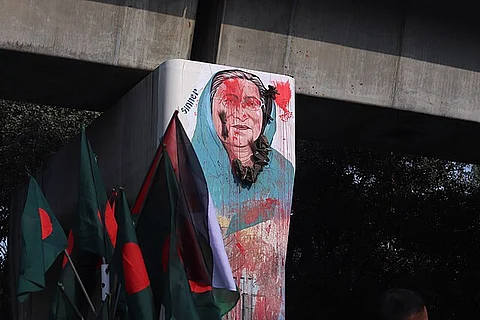

Khokon Chandra Barman, a 23-year-old microbus driver disfigured by police gunfire during the 2024 protests, became the first witness to testify against former Prime Minister Sheikh Hasina at Bangladesh’s International Crimes Tribunal. Removing his mask in court, Barman revealed catastrophic facial injuries; a shattered left eye, damaged right eye, and destroyed lips, nose, and teeth sustained on August 5, 2024, as security forces cracked down on student-led demonstrations. "I want justice for my ordeal and for fellow protesters who sacrificed their lives," he declared, while state television broadcast footage of his bloodied face from the attack.
Chief Prosecutor Mohammad Tajul Islam framed Hasina as the "nucleus" of crimes against humanity, detailing five charges including failure to prevent mass murder, incitement of violence, and direct orders for lethal force. Evidence includes leaked audio where Hasina instructed security forces to "use lethal weapons" and "shoot wherever they find" protesters. The UN attributes 1,400 deaths to the July–August 2024 crackdown, with prosecutors citing helicopter-fired bullets, drone strikes, and coordinated attacks by police and Awami League militants on unarmed crowds.
State-appointed lawyer Amir Hossain contested Barman’s account, noting the "chaotic final day" of protests left police officers dead and raised uncertainty over responsibility for the shooting. Hasina, now 77, remains in India ignoring extradition demands and dismisses the tribunal as politically motivated. Her co-accused include fugitive ex-Interior Minister Asaduzzaman Khan Kamal and former police chief Chowdhury Abdullah Al-Mamun, who pleaded guilty and turned state witness.
Attorney General Md Asaduzzaman demanded "maximum punishment," emphasizing that victims’ families reject financial compensation in favor of judicial accountability. The trial, broadcast nationally, revisits the tribunal Hasina established in 2009, now repurposed to prosecute her own alleged crimes. Forensic analysis by BBC and Al Jazeera verified audio evidence of her orders, contradicting Awami League denials. With 60 police officers already arrested and 203 indictments issued, the proceedings signal a pivotal reckoning for Bangladesh’s democratic future.